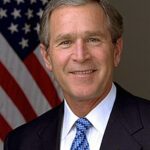President George W. Bush secretly authorized the NSA warrantless surveillance program in October 2001. This controversial decision allowed unprecedented domestic spying without court oversight. The program monitored millions of Americans’ phone calls and emails without judicial approval.
The Secret Authorization
Bush bypassed the Foreign Intelligence Surveillance Act (FISA) courts established in 1978. The program operated under the code name “Stellar Wind.” NSA analysts tracked communications patterns of ordinary American citizens. The administration claimed executive wartime powers justified these actions. 📊 Data collection occurred on an industrial scale never before seen in American history.
Constitutional Violations
Legal experts argued the NSA warrantless surveillance violated Fourth Amendment protections. The program lacked judicial oversight required by existing laws. Bush administration lawyers crafted secret legal memos to justify the activities. ⚠️ Civil liberties groups warned about dangerous precedents being set. The program continued expanding beyond its original terrorism-focused scope.
Exposure and Whistleblowing
The New York Times revealed the program’s existence in December 2005. NSA whistleblower Thomas Drake later exposed additional violations. Congressional leaders had received only limited briefings about the scope. The revelation triggered immediate calls for investigations and accountability measures.
Impact:
The NSA warrantless surveillance program created lasting damage to American civil liberties and constitutional governance. Public trust in government institutions eroded significantly after the program’s exposure.
Constitutional Crisis
The program triggered the most serious Fourth Amendment crisis in decades. Federal courts later ruled key components of NSA warrantless surveillance unconstitutional. 🔥 Congressional battles erupted over executive power limits during wartime. Multiple lawsuits challenged the program’s legality in federal courts. The Justice Department faced internal revolts from career prosecutors.
Political Fallout
Democrats demanded congressional investigations into the secret surveillance activities. Republican supporters argued national security justified the extraordinary measures. The 2006 midterm elections partly reflected voter anger over civil liberties violations. 📉 Bush’s approval ratings declined as surveillance details emerged publicly. The controversy dominated political discourse for years afterward.
Long-term Consequences
The program established dangerous precedents for future presidential overreach. Technology companies faced new pressures to cooperate with government surveillance requests. 🌍 International allies questioned America’s commitment to constitutional principles and rule of law. Privacy advocates strengthened their organizations and legal challenges significantly. The surveillance state expanded dramatically under subsequent presidential administrations.
